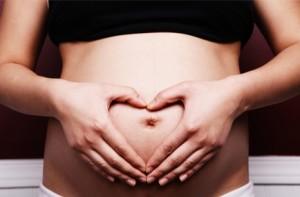Symptoms of Ovarian Cysts
There are so many different reasons for infertility, in both men and women, that it’s impossible to use a blanket term to cover everything. Instead, it’s important to look at various things that could affect your chances of conceiving and consider what diagnosis suits your own  personal situation.
personal situation.
Ovarian Cysts are small fluid-filled sacs that develop in the ovaries. In most cases, they’re completely harmless, but they can rupture and cause tremendous pain. If a ruptured cyst is left untreated, it can form sepsis, which is quite toxic and potentially lethal.
Of course, the presence of ovarian cysts can also interfere with normal conception.
Most medical specialists will recommend that any cysts be removed surgically, which can be a painful and expensive procedure. What they don’t tell you is that it’s possible to reduce ovarian cysts naturally and painlessly.
‘Lazy’ Ovaries
Some specialists will diagnose ‘lazy’ ovaries as a cause of infertility. This simply means an egg isn’t being released when it should, so they’ll tend to prescribe infertility drugs, such as Clomid, to induce ovulation.
Unfortunately, studies in Washington have proved that the number of women who had taken Clomid are three times more likely to develop ovarian cancer than those who don’t.
Once again, these specialists forget to let you know there are ways to stimulate and induce ovulation using natural methods. Of course, when you consider that the infertility drug industry is now a billion dollar industry, why would they want you to know you could do it yourself?
PCOS (PolyCystic Ovarian Syndrome)
Polycystic Ovarian Syndrome is the term given when many small cysts are apparent within the ovaries. PCOS is thought to be one of the leading causes of female infertility. In some cases, this can be linked to obesity, acne, increased insulin resistance, lack of ovulation and sometimes an excess of masculinizing hormones.
Of course, this doesn’t mean every patient who has acne or who is obese will have PCOS. Similarly, patients who have ovarian cysts may not have PCOS.
Similarly, patients showing an excess of masculinizing hormones may show unwanted facial and body hair growth as well as developing acne, but they also may not have PCOS.
Correct diagnosis can sometimes be difficult, but treatment can be relatively easy with prescription of a dietary supplement known as DCI, which is a naturally occurring human metabolite that helps with insulin metabolism.

